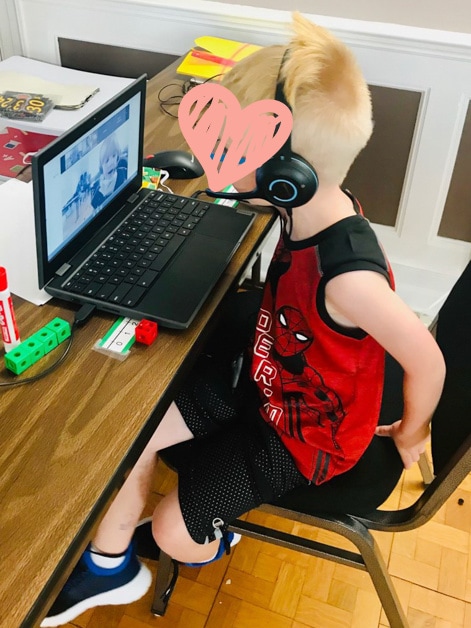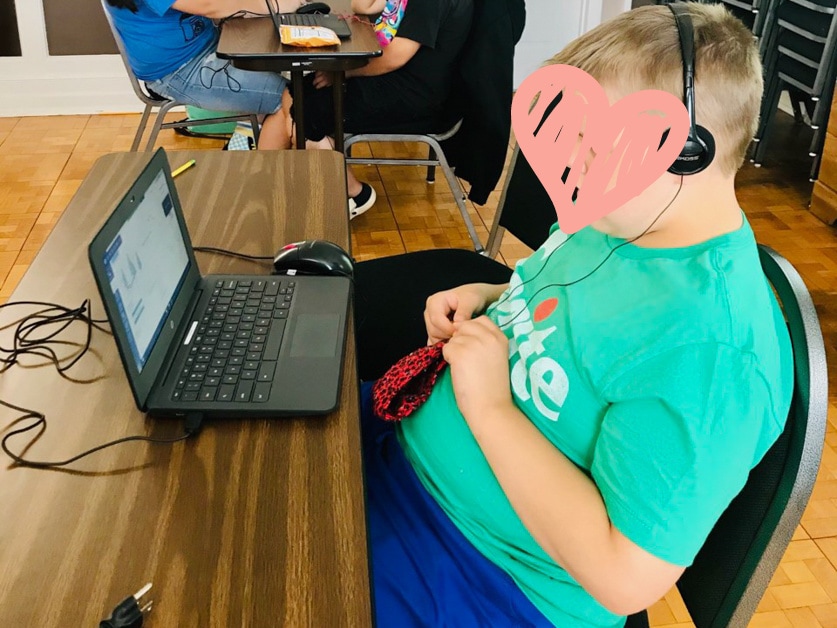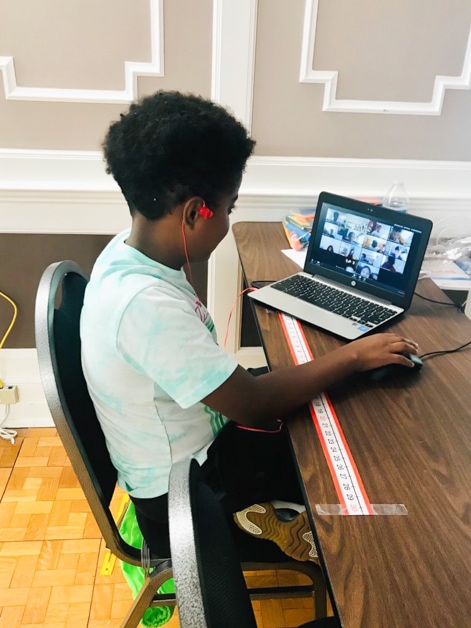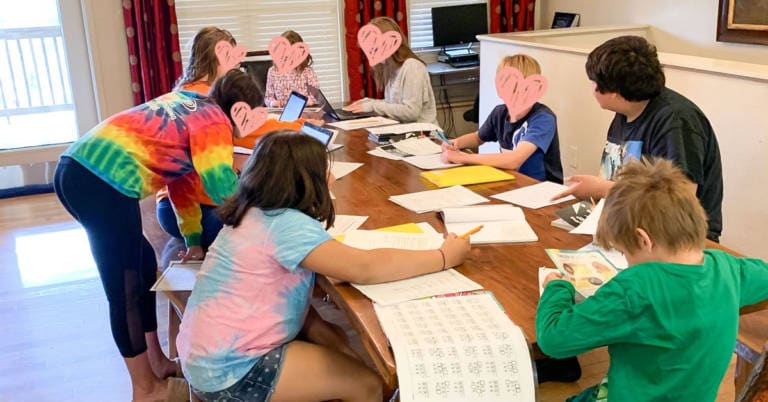by Virginia Ford, Assistant Residential Director, and Neil Barrett, Case Manager
Schooling in the time of COVID-19 has been somewhat of a nightmare for parents, educators, and especially students, testing patience on all fronts.
There are the standard tech glitches, lack of motivation, distractions caused by siblings and the at-home environment (cell phones, the TV, the list goes on), or even underlying medical reasons.
The struggle is real.
But what has it been like for the students living on one of our campuses, those who rely on people outside of their traditional family to stand in the gaping educational chasm every day?

The simple answer is: It’s been extremely tough for them, too. Parents and kids alike around the world have been consistently and constantly inundated with new challenges. Or, as we choose to refer to them, “opportunities to adapt.” It has been extremely tough. More than a few of us have contemplated our life decisions. But we’ve made the best of it so far, and wanted to share our experience and tips and tricks for making it work.

Keep them determined.
Keep them determined. Our kids have (once again) proven their resiliency, their strength, their intelligence, and their potential for growth. We have had students that have thrived in virtual learning; kids who struggle with the distractions of the classroom and the social dynamics in school. We have kids who have shown their determination to create a future for themselves against all odds. We have seen them move with grace in adjusting to a “new normal.”
However, for many kids, staying motivated without the structure of physically being in school has been a struggle. This is especially true in a setting where their Crossnore Cottage Parents have eight other kids who might not even go to the same school, much less be enrolled in the same classes.
Focus on the future.
We have watched teens that are fast approaching adulthood and were once motivated to complete their education move from discouraged to overwhelmed to a state of hopelessness. We have watched as back-to-back quarantines, cancelled events, and an inability to “escape” through traditional means build tension, frustration, and exhaustion.
In an effort to counteract this, we talk a lot about their future and their goals.
Many of our kids, unprepared for the sheer amount of free time they have had in the last year, have discovered talents and passions that a traditional school year wouldn’t have allowed. Some have even discovered the things they want to do with their lives and are now talking about going to college — something that they previously would never have entertained.
That in and of itself is a beautiful thing.
Maintain consistency.
Maintain consistency as much as possible. As parents around the world surely did, we made several mistakes in the early days of COVID-19. One of the biggest mistakes was our lack of consistency in the way we handled school.
We thought we could make a “new normal” that allowed us to take advantage of the freedom that the technology being used provided us. Instead, we caused more headaches for ourselves. Our students had trouble focusing in their cottages with the noise of other students and the distraction that comes with being in their homes near their beds, toys, and the like.
We also learned that asking our cottage parents to serve as teachers for nine kids each who all have their own needs, classes, computer applications, and even their own schools some times, was too much. Something was ultimately going to give.
We had to rethink our system.

Reinstate the “normal.”
For us, it was about getting back to something that approached the “old normal.” That meant keeping similar schedules, having students go to a physical classroom-like setting on campus to have them attend school physically not just mentally, and providing tutors and other helpers familiar with the education system to help our students succeed.
Now, with kids just beginning to return to in-person instruction, we have a new set of challenges. After going so long without in-person instruction, many are struggling with re-entering the structure and expectations of the classroom. How do you reinstate the “old normal” once the storm passes?
By maintaining consistency as much as possible, we hope to provide a smooth transition for our kids.
Enjoy it.
Enjoy It. I know it sounds hard to believe, but sometimes it really is as simple as taking a moment to stop and smell the roses.
As Virginia Ford, an Assistant Residential Director on our Avery County campus put it, “I’m a parent whose young children will go back to in-person instruction four days a week for the first time in a year, and I find myself shockingly mournful (with a big heaping side of relief and gratefulness), wondering if I really took time to enjoy the hidden blessings that came along with a year of juggling the chaos.
Did I slow down enough to appreciate the unprecedented year-plus of being able to be near my family so much of the time? How often does a parent get such an intimate view of the educational process that their children experience? I hope I didn’t take it for granted too much.”



